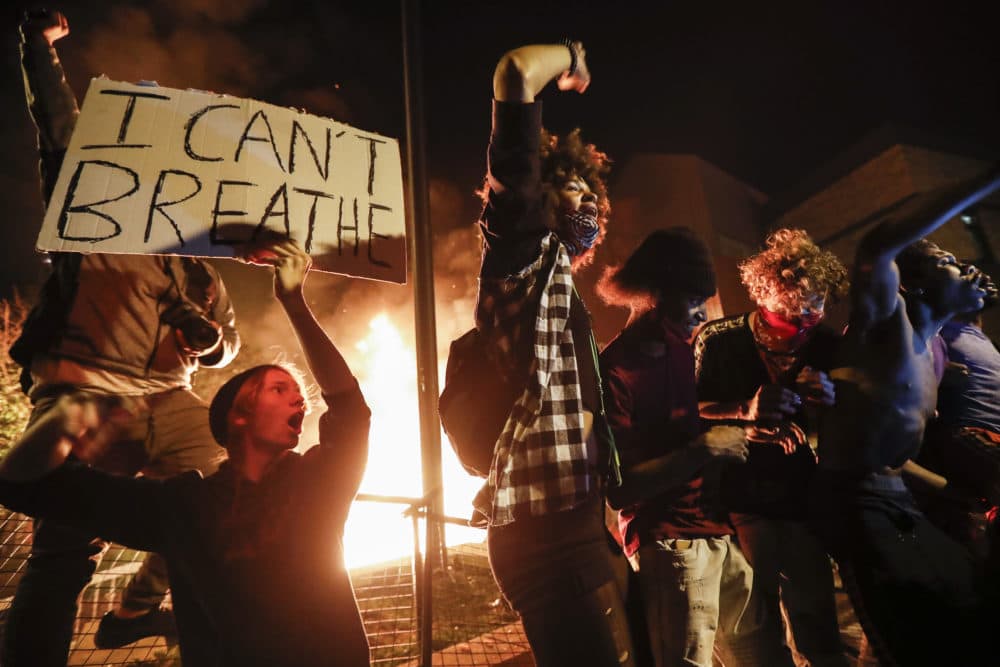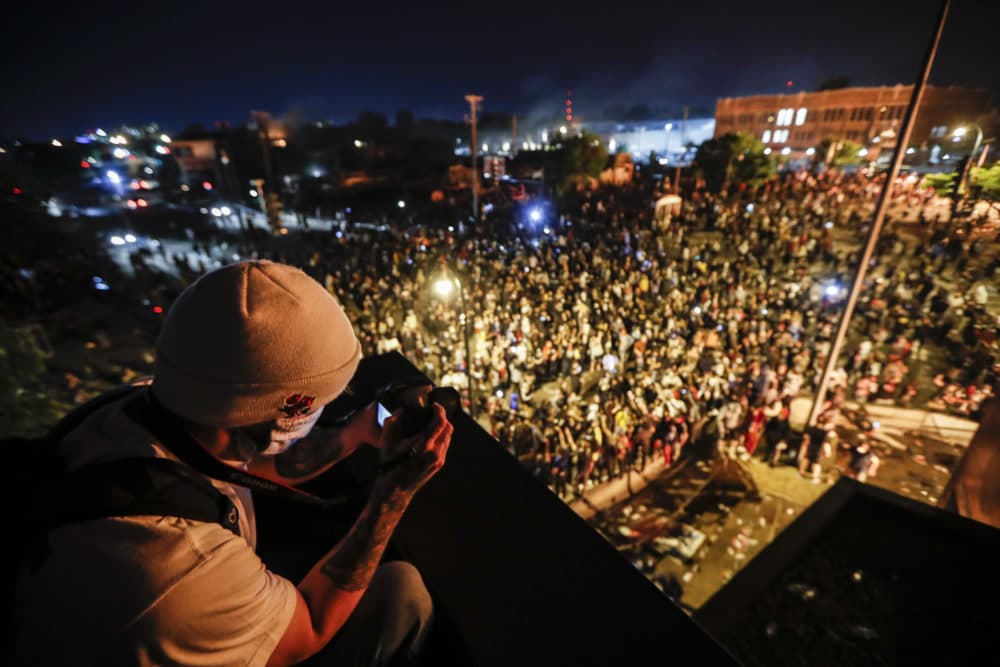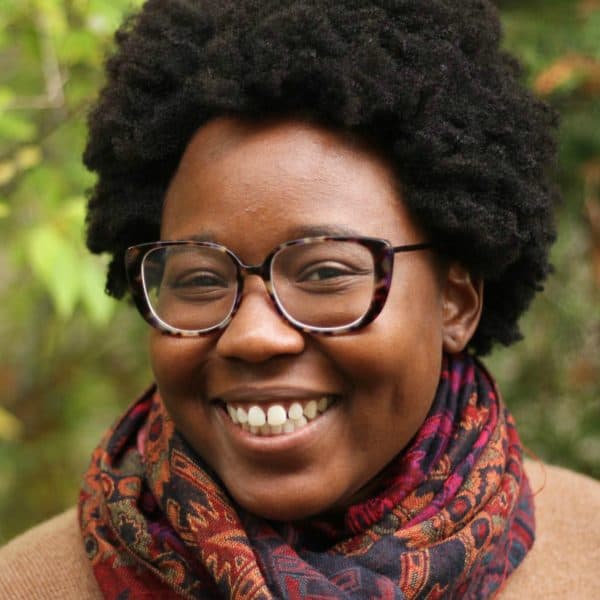Advertisement
Commentary
'I Do It To Survive': Being Black In America Means Adapting To Constant Risk

Tuesday night before bed, I watched a video about squirrels. In it, former NASA engineer and current bored dude Mark Rober, transfixed by the birds in his backyard like the rest of us, created an obstacle course for squirrels. Those who finished would get full access to the birdfeeders they leap towards every day, plus bonus walnuts.
In the 21-minute video, Rober frequently puts the film into slow-motion, describing the mechanics of how squirrels move, and how rapidly they assess danger to determine how to navigate it. He marvels at how willing the squirrels are to tolerate risk — an adaptation developed largely because their survival depends on accepting constant danger. Their bodies perform tricks, allowing them to survive.
Before my squirrel-video lullaby, my big sister had texted me. A five-minute drive from her home in Minneapolis, a black man named George Floyd had been killed by a city police officer who kneeled on his neck as Floyd cried for his mother and gasped, "I can't breathe." My sister and her husband joined the protests on the streets near their home that next day and she texted video of the march. I couldn’t watch it. “I have to ration my energy with things like this,” I told her.

The next morning, after I'd made the mistake of scrolling through the news, a friend texted to ask if I'm OK. I couldn’t respond. Because the truth is, no. I am not OK. And it is not a conversation that I have the energy for right now. You see that? I've adapted.
When police in Minnesota killed Philando Castile in front of his girlfriend with his daughter in the back seat, it hit way too close to home for this Wisconsinite. I was unable to accept it. I am still unable to accept it. I never watched the video of Castile’s murder, and I haven’t watched the video of Floyd’s murder either. I know the details because I need to. I need to remind myself of the risk my black body constantly faces. I need to adapt.
So I skim the news articles. I wait until my heart feels a bit more numb, and then I read in fuller detail. This week, I’ve been watching, as if in slow-motion, the way my phone-scrolling thumb moves to block images of Floyd’s now extinguished smile. Friends ask me what they can do to help. I don’t respond. I close my eyes and try to fall asleep, but the room is too hot. I direct my fan to my body in bed. I let its sound drone out my thoughts so I can sleep. When my little sister asks if anyone else is afraid of what this summer might bring, the most I can say in response is, “Yes.”
How quickly I accepted risk, how intertwined it is with living.
I cannot accept that George Floyd was killed mere minutes from where my family lives, where my niece and nephews could have witnessed it. It messes me up to see images of so many people in the street, risking their lives and their bodies still unadapted to the coronavirus, forced to protest. I do not accept the message of protection and service emblazoned on the side of cop cars, when the men who exit those vehicles murder us. We are not safe. We cannot go for a jog. We cannot be in our own homes. We cannot go bird watching. My mind races when I consider how Christian Cooper and Amy Cooper have the same last name (What does that mean? How historically linked are his ancestors to hers? It messes me up a lot that they have the same last name).
The videos mess me up. The photos mess me up. I don't watch. I try not to look. I try not to even think too much. I keep my thumb scrolling quickly, I save my voice for my family, I force my mind to rest. I've adapted.
The morning after images of Floyd’s face became inescapable, I got out of bed. As I ate breakfast, I received a Facebook Messenger request from a man I did not recognize. And very rapidly, my thoughts leapt from one to another: Oh crap, he's white. He sent an image? "Solidarity" murder video? Pro-police propaganda? Wait. Maybe he's a neighbor.
I opened it. It was about face masks. I sew fabric masks for my friends and family; I’d asked someone in my face mask group if he could make me a template on his 3D printer. He was responding. He wanted to be of service.
But I watched how rapidly I assessed — and assumed — likely danger based on what my body has been through. How quickly I accepted risk, how intertwined it is with living. Because the most paramount adaptation I have made is knowing that there is no other choice.
The squirrels in Rober’s video might leap because it's fun, but more likely, they leap because they must. From tree branch to rooftop and birdfeeder, they are just trying to survive. And so am I. When I go to the grocery store, the gas station; when I numb my heart to read the news, when I interrupt my refuge to respond. I accept these risks because I have to. I do it to survive.
But I am tired. Tired of saying we cannot breathe, and tired of those words not loosening the grip. I don't want to teach myself new tricks. I don’t want to ration, and wager, and think.
Survival is a privilege with little reward, and I am tired of this obstacle course.
